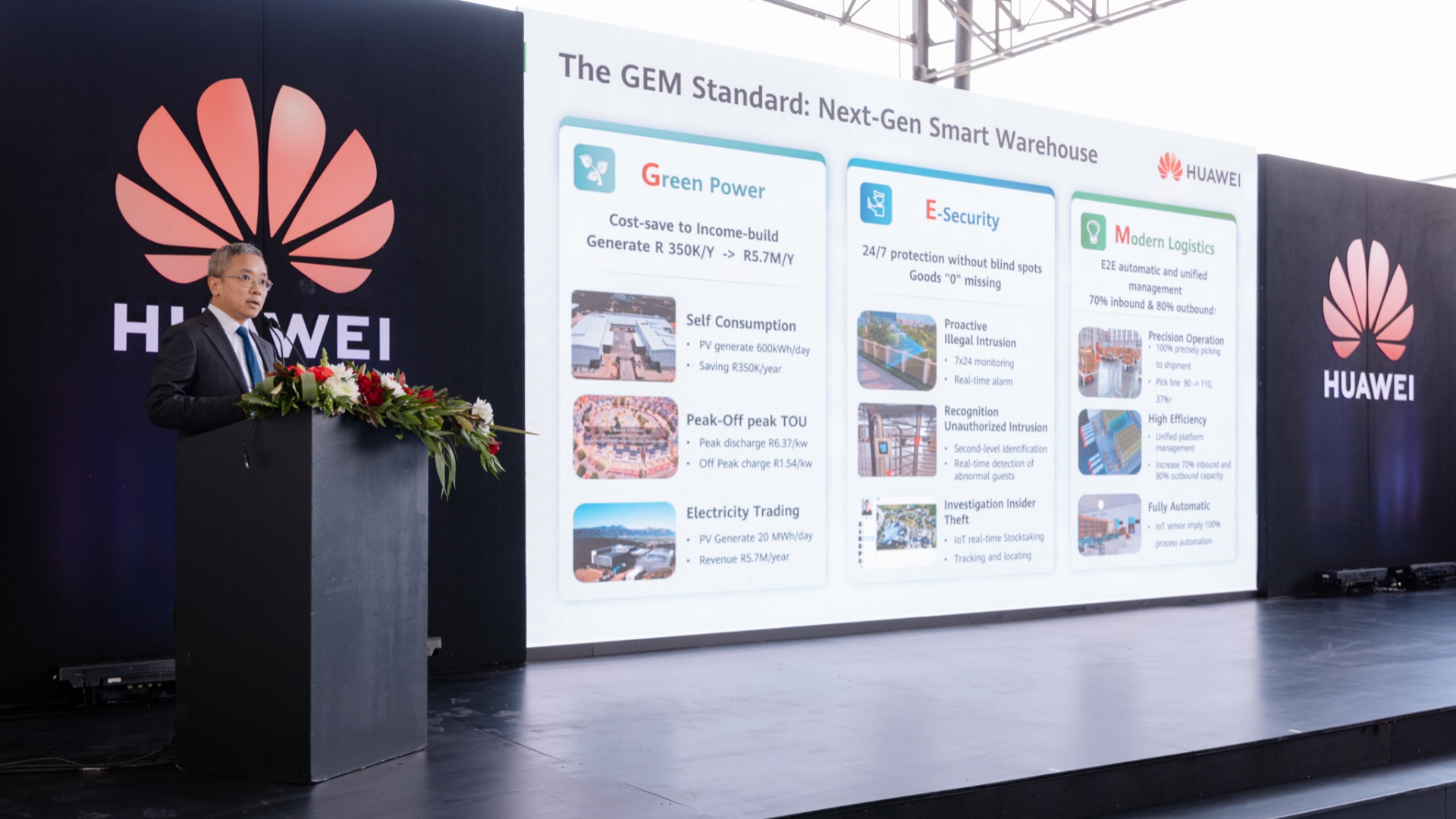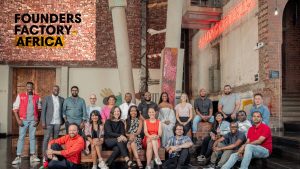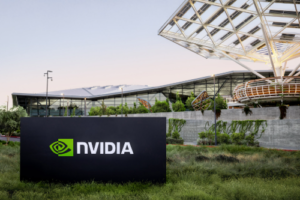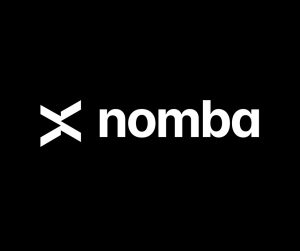Key Developments
Huawei Launches Smart Warehouse in South Africa to Transform African Logistics

Huawei South Africa has unveiled a cutting-edge smart warehouse in Johannesburg, marking a major development in the region’s logistics landscape.
Spanning 14,000 square meters, the new facility incorporates high-tech systems aimed at improving efficiency, security, and environmental sustainability across African supply chains.
This new warehouse is part of Huawei’s broader strategy to modernize logistics operations in Africa.
With automated processes and intelligent systems, the facility is designed to streamline operations and cut costs.
It represents Huawei’s commitment to supporting innovation and technological growth on the continent.
Will Meng, CEO of Huawei South Africa, highlighted the growing value of the country’s logistics sector.
“In 2024, the South African warehouse and logistics market was worth $93 billion. By 2032, it is expected to grow to $157 billion,” he said.
Meng emphasized that this growth is more than financial—it signals a shift toward smarter, faster, and more resilient supply chains capable of staying competitive in today’s global economy.
Technology-Driven Efficiency
The GEM framework—Green Power, E-security, and Modern Logistics- is at the heart of Huawei’s smart warehouse.
This model is supported by a digital warehouse management system that automates around 60% of daily tasks, allowing for faster and more reliable operations.
Green Power: The warehouse is powered by a 150KWp solar system equipped with Huawei’s SUN2000-100KTL-M2 inverters. This setup meets about 90% of the building’s daytime energy needs. According to Herman Fourie, Senior Solutions Manager for Huawei’s Digital Power unit, this model gives companies a cost-effective energy solution while also offering the potential to sell surplus power back to the grid.
E-Security: Safety is managed through AI-powered cameras that offer full-color 24/7 monitoring, even in complete darkness. These cameras detect potential threats and operational issues without requiring large control centers, freeing up space for storage and boosting overall warehouse safety.
Modern Logistics: The warehouse has eliminated paper in its picking operations, replacing it with PDA scanners and automated equipment like AGVs (Automated Guided Vehicles) and AGFs (Automated Guided Forklifts). These technologies bring items to workers, rather than the other way around, enabling them to handle up to 110 tasks per hour—nearly doubling the output of traditional methods.
Stevin John Du Plessis, Logistics Manager at Huawei South Africa, led an exclusive tour of the facility, showcasing how the blend of automation and human oversight drives a 70% to 80% increase in efficiency.
A Look at the Future
York Ning, Director of Enterprise Marketing & Solutions, emphasized how the warehouse integrates all operations into a unified digital system.
“Our platform coordinates automated machines and employees, boosting output by 37% per staff member,” he explained.
This synergy between people and technology illustrates how Huawei is setting a new benchmark for logistics innovation in Africa.
The Johannesburg smart warehouse is more than just a local facility—it’s a symbol of Huawei’s ambition to shape the future of logistics across the continent through sustainable, secure, and intelligent infrastructure.
Related Articles
Register Now
Empower Africa Times Newsletter
Share :
You may also like...

Founders Factory Africa Rebrands as 54 Collective, Plans to Invest in 105 Early-Stage African Startups
South African startup accelerator, Founders Factory Africa, has undergone a significant transformation, rebranding as 54 Collective.

Cassava Technologies and Nvidia Partner to Launch Africa’s First AI Factory in South Africa
Cassava Technologies has teamed up with Nvidia to launch Africa’s first AI factory, which will be built in South Africa.

Nomba raises $30m Pre-Series B funding round
Nigerian payment service provider Nomba has raised a $30 million Pre-Series B funding round to enable businesses to easily and securely receive customer payments across Africa.
